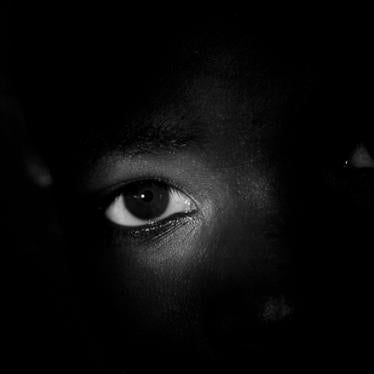Joseph Kony, Thomas Lubanga and Charles Taylor are just the tip of the iceberg. The use of children as soldiers extends far beyond Africa.
Last week in The Hague, the International Criminal Court, or ICC, found the Congolese warlord Thomas Lubanga guilty of recruiting and using child soldiers in the armed conflict in that country, sealing his fate as the court's first convicted war criminal.
At the same time, the viral video "Kony 2012" has seemingly achieved its goal of making Joseph Kony, another rebel commander facing an ICC arrest warrant, notorious for his alleged crimes, including the abduction of an estimated 30,000 children for his Lord's Resistance Army. Millions of people have viewed the video, with millions more learning about Kony, who is still at large, through mainstream media coverage of the campaign.
Kony, Lubanga and Charles Taylor could be regarded as the three most infamous child soldier recruiters in the world today. Taylor, the former president of Liberia, is awaiting a verdict from the Special Court for Sierra Leone on charges of recruiting child soldiers and other crimes.
Together, the three may bear responsibility for forcing tens of thousands of children into brutal and deadly wars.
But the use of child soldiers extends far beyond Central and West Africa. Today, child soldiers are fighting in at least 14 countries, including Colombia, Myanmar (also known as Burma) and Afghanistan. In most of these cases, there have been no arrest warrants, no trials and no convictions for those responsible.
The United Nations has identified more than a dozen "persistent perpetrators," governments and armed groups that are known to have used child soldiers in active conflict for more than 10 years. The Revolutionary Armed Forces of Colombia, or FARC, rebels in Colombia, for example, have recruited children as young as 7 and forced them into combat. They execute fighters who try to desert.
In some cases, military recruiters not only escape punishment but are rewarded for bringing children into their forces.
On the Thailand-Burma border, I interviewed boys who had escaped from Burma's army. Some were only 11 years old when recruiters threatened or coerced them into joining the army. They said that when they arrived at the recruitment center, the commanders not only turned a blind eye to the boys' young age but gave the recruiters cash and bags of rice.
The situation in a few countries is becoming notably worse. In Afghanistan, the Taliban has stepped up its use of children for suicide attacks. In Somalia, the Islamist armed group Shabab has increasingly targeted children for forced recruitment, often abducting children as young as 10 from their homes or schools.
Lubanga's conviction is a landmark. But more action is needed to address the problem globally.
At the national level, governments need to crack down on commanders who recruit children. Burma has prosecuted some low-level soldiers but no high-ranking officers. In the Democratic Republic of Congo, not only is Bosco Ntaganda, one of six wanted by the ICC for recruiting child soldiers, still at large, but he has been promoted to the rank of general in the national army.
Other governments may be complicit in the use of child soldiers by other countries. The United States, for example, continues to provide military assistance to governments using child soldiers in their national forces, including the Democratic Republic of Congo and Yemen, despite U.S. laws prohibiting such aid.
Lubanga and Taylor are facing real consequences for their use of child soldiers. Kony, if apprehended, could also face decades in prison.
But the scourge of child soldiers reaches around the globe. To end the use of child soldiers, we can't stop with these three.
Jo Becker is the children's rights advocacy director for Human Rights Watch. She has investigated the recruitment and use of child soldiers in Uganda, Burma, Sri Lanka, India and Nepal.








